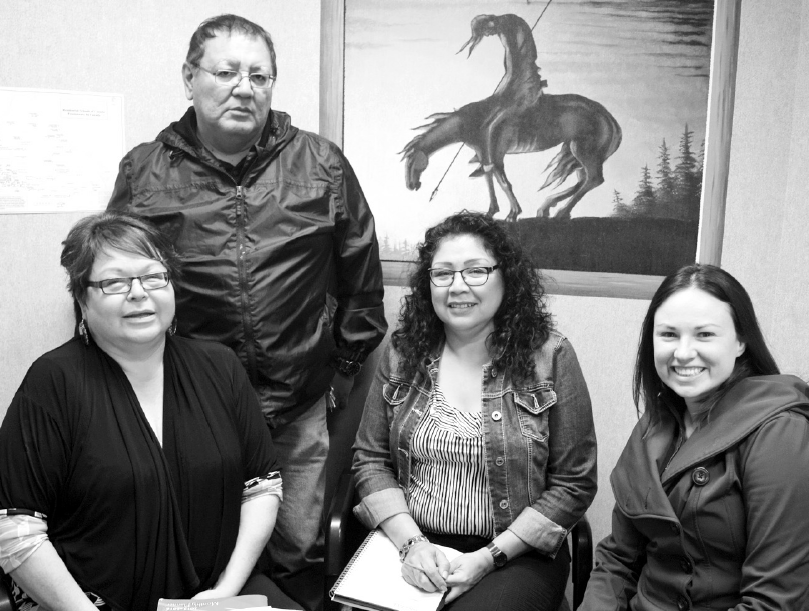District educators, particularly those at Keeseekoose Chiefs Education Centre, are pleased to be participating in a pilot project aimed at improving the success rate of First Nation students.
Discussing the program last week, Richard Fiddler, principal of the Keeseekoose school, explained that the Following Their Voices program is an initiative of the Saskatchewan Ministry of Education, the Yorkton Tribal Council and the Good Spirit School Division.
The program was devised after representatives of the Ministry had gone to New Zealand to investigate why aboriginal students in that country were succeeding with their education at a much higher rate than are the First Nation students in Canada, Fiddler said, adding that the Keeseekoose School, as well as the Kamsack Comprehensive Institute and Victoria School in Kamsack were among the 17 schools selected to participate in the pilot program.
Each of the schools in the pilot project has selected a teacher to attend training sessions in Regina which are being held in Regina this week, he said. Those lead teachers are then to share their in-sights with their fellow staff members.
It is an attitude or mindset on how to teach First Nation students in their own schools that must be adopted, he said. “We have to discover why First Nation students are not connecting with their instructors and why they drop out of school at a high rate.” The Following Their Voices priority guiding vision is “education that promotes accelerated learning for First Nations, Métis and Inuit students where learning is joyful, culture is affirmed and students are given real choice for their future,” says the Government of Saskatchewan website.
“Education that is relational and culturally responsive demonstrates a focus on responding from within areas of influence; a commitment to continuous learning, unlearning and re-learning, and a change in practice that accelerates achievement for First Nations, Métis and Inuit students learning as First Nations, Métis and Inuit students,” the site says.
Evidence of these understandings can be demonstrated by believing in and caring for First Nations, Métis and Inuit students and their cultures; having high expectations that Métis, Inuit and First Nations students are self-determining, can participate and can achieve; creating secure, well-managed learning environments; engaging in teaching and learning interactions that are responsible to student interests and needs; using a range of strategies to promote accelerated growth and using evidence from Métis, Inuit and First Nations student outcomes for critical reflection and for identifying strategic actions that promote accelerated growth.




